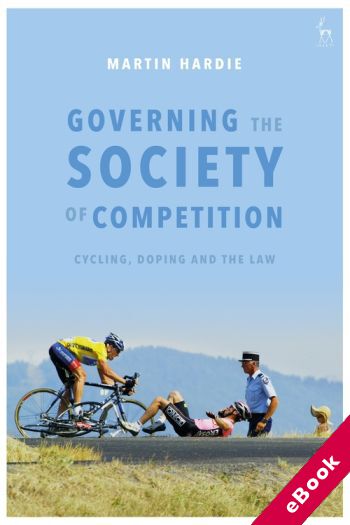
The device(s) you use to access the eBook content must be authorized with an Adobe ID before you download the product otherwise it will fail to register correctly.
For further information see https://www.wildy.com/ebook-formats
Once the order is confirmed an automated e-mail will be sent to you to allow you to download the eBook.
All eBooks are supplied firm sale and cannot be returned. If you believe there is a fault with your eBook then contact us on ebooks@wildy.com and we will help in resolving the issue. This does not affect your statutory rights.
This book considers the manner in which the making and implementation of law and governance is changing in the global context. It explores this through a study of the deployment of the global anti-doping apparatus including the World Anti-Doping Code and its institutions with specific reference to professional cycling, a sport that has been at the forefront of some of the most famous doping cases and controversies in recent years. Critically, it argues that the changes to law and governance are not restricted to sport and anti-doping, but are actually inherent in broader processes associated with neoliberalism and social and behavioural surveillance and affect all aspects of society and its political institutions.
The author engages with concepts and arguments in contemporary social theory, including: Dardot and Laval on neoliberalism; Agamben on sovereignty; Hardt and Negri on globalisation; and others including Foucault, Deleuze and Guattari, and Louis Dumont. The work seeks to answer a question posed by both Foucault and Agamben; that is, given the growing primacy of the arts of government, what is the juridical form and theory of sovereignty that is able to sustain and found this primacy? It is argued that this question can be understood by reference to the shift from a social or public contract that was understood to be the foundation of society, to a society that is constituted by consent, private agreement and contract.
In addition, the book examines the juridical concepts of the rule of law and sovereignty. Commencing with the Festina scandal of 1998, the Spanish case of Operación Puerto and concluding with the fall from grace of the American cyclist Lance Armstrong in 2012, the principal processes examined include: